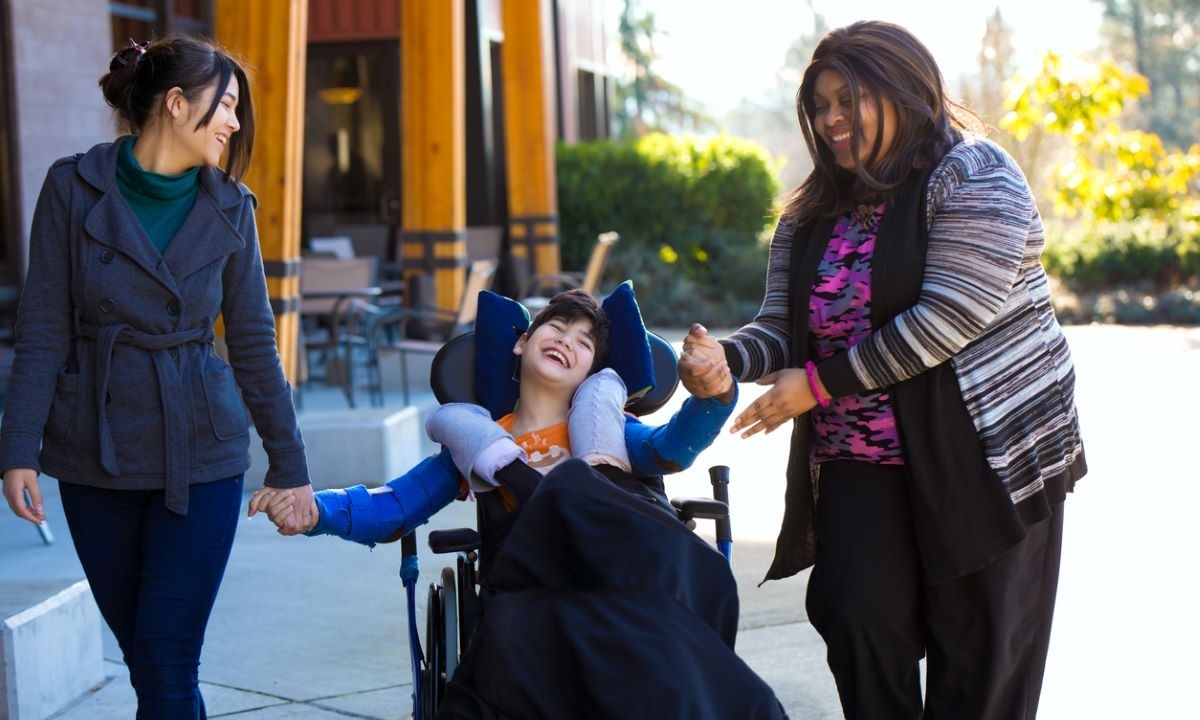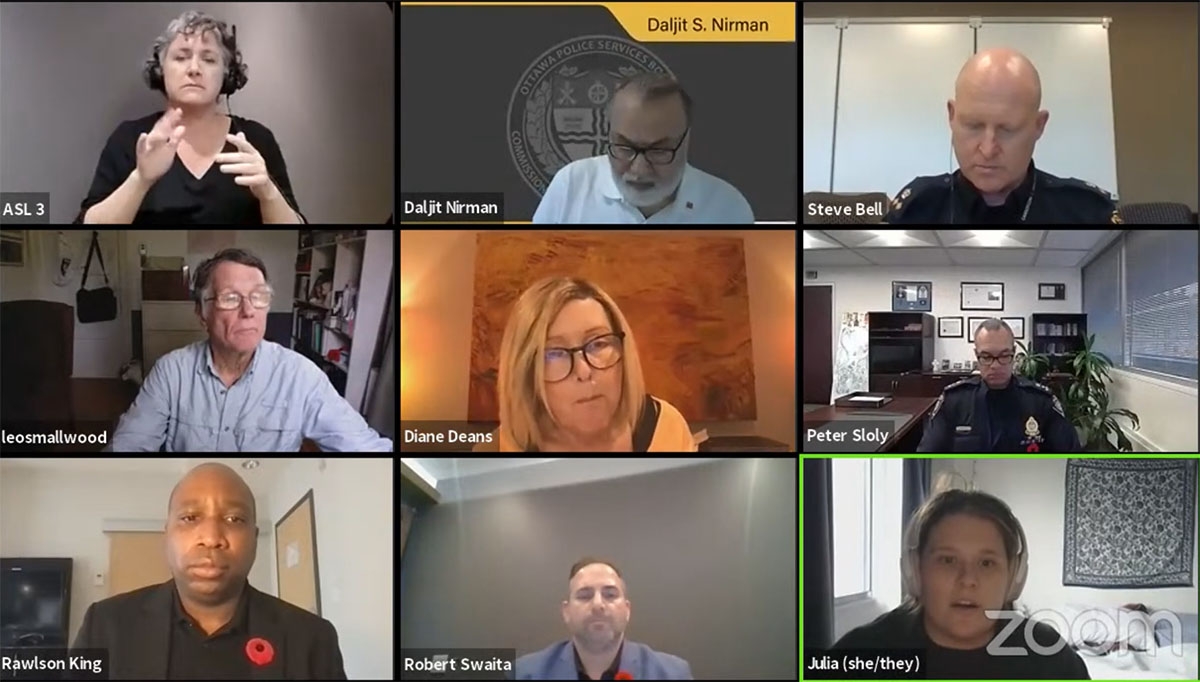
The relationship between a caregiver and the person receiving care
ABOVE: A young boy takes a walk with his caregivers. (PHOTO:iSTOCK)
“If you have a good working relationship, the better chances you have of them (caregivers) sticking around and positively impacting your life.”
The relationship between a caregiver and the person receiving care can often seem confusing to those not involved. Throughout my entire life, I’ve had several caregivers, perhaps thousands. Whether it was Personal Support Workers, Registered Practical Nurses, or Nursing Students, I’ve always had caregivers of some level in my life. While job titles may differ as well as schooling, they all have one thing in common.
To provide care and ensure the person’s comfort and safety.
For some caregivers, it’s just a job, and there isn’t any attachment at all. For others, a bond is formed, lasting for years after the caregiver aspects have ended. Personally speaking, I’ve had both cases happen several times in my life.
Each relationship and experience can be different. My situation is different than almost anyone that I know. One of the main reasons for that is that I have 24-hour care, and it’s one-on-one. Also, each shift is typically eight hours long. We spend a lot of time together. We’re not always in the same room, but they’re usually within earshot of me.
Some days, it can be pretty challenging trying not to get on each other’s nerves. Sooner or later, one of us and even both of us will be having a bad day or be in a bad mood. Knowing how to navigate the rough patches is vital in maintaining a good caregiver relationship and in most relationships in general.
Like in most relationships, there’s a period of adjustment each time a new caregiver enters the picture. Communication, as well as some level of trust, needs to be established relatively quickly. Often, at least for me, my life is in their hands regardless of when we first met them. In a way, you’re almost forced to assume that they will help you in a life or death situation. The communication aspect becomes even more critical when a life or death situation happens. If you’re able to communicate well, especially in an emergency, the better your chances of resolving the problem.
Trust is essential for many other reasons as well. For example, when it comes to banking and handling my money. Thankfully, I’m able to pay bills online as well as being able to shop. However, I’m physically unable to use an ATM and the credit/debit card machine at the cashier. To make in-store purchases, I need to trust my caregiver enough to grab my wallet and tell them my PIN for my ATM card for me to pay for my purchase. Once that’s done, I need to make sure they return my wallet and my bank card.
In the 27 years of living on my own, I’ve had at least two caregivers steal money from me. It’s sad to say, but I’ve heard much worse stories from some of my friends.
When you have a regular caregiver, it’s often pretty hard to avoid SOME form of connection. You’re around each other often. They sometimes see you at your worse and your best, also during difficult times both medically and in your personal life. You end up sharing a lot even if you didn’t intend to. So much so that your partner(s) may become jealous of your caregiver.
There have been several instances where former partners of mine became jealous or suspicious of the relationship between a caregiver and me. In my partner’s eyes, the caregiver was too close to me, and they were in our way, or that I was fooling around with them behind my partner’s back.
Full disclosure, I’ve never dated or come close to anything related to one of my caregivers. To me, it crosses a line and would probably cause drama if the job or relationship ends. In a previous column, I discussed the topic of having some of my partners becoming a caregiver, and it didn’t go well for me, but that’s my own experience.
I know a few couples where one person is a caregiver for their partner or partners. Every person’s experiences and boundaries are different, though. Also, sometimes you may not have a choice, especially if it’s a sudden medical situation.
So, what makes a good caregiver?
Respect would be near the top of my list. A caregiver should respect you, your place, and your boundaries. They may not always agree with your lifestyle, but it’s your life. As long as you’re not putting the caregiver’s life at risk, yours, or doing anything illegal, it’s not their place to interfere.
Another important quality is being able to communicate well. If the person you’re caring for is non-verbal, they can still typically communicate in some form. Learn how you can communicate with them. It’s a vital part of the job/relationship for several reasons. You’d honestly be surprised how many caregivers I’ve met that assumed that I’m unable to speak or communicate.
One last quality is the ability to learn YOUR care and needs and take instructions from you, especially in the beginning. It’s a team effort. You both need to be on the same page in terms of getting things done. The caregiver should also be aware that something unexpected may happen and is, therefore, able to listen to your instructions on how they can help you.
As I noted, each person’s experience is different. It’s crucial to try to figure out what works for you and them. If you have a good working relationship, the better chances you have of them sticking around and positively impacting your life.
. . . and theirs as well.












